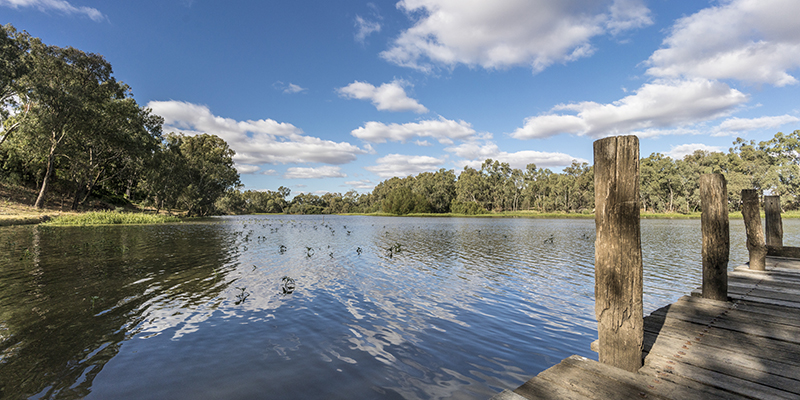Plan for Gwydir's water future launched
The NSW Government has ushered in two decades of safe, secure and reliable water for the Gwydir region, thanks to the launch of the Gwydir Regional Water Strategy.
The NSW Department of Planning and Environment’s Executive Director Water Strategy and Policy Kaia Hodge said communities and stakeholders across Moree, Uralla, Bingara, Warialda and the entire Gwydir region would benefit from the robust plan now and in the future.
“After consulting closely with Aboriginal communities, farmers, residents, businesses, stakeholder groups, and councils earlier this year, we have finalised 22 actions that will help meet the Gwydir’s long-term water needs and put the region in a stronger position to manage the next drought,” Ms Hodge said.
“This Strategy is about greater water security and reliability for towns, the environment, Aboriginal communities, local businesses and farmers across the Gwydir.
“It's about improving floodplain flows and water delivery to the Ramsar-listed Gwydir Wetlands.
“We’re also looking at ways to help open up more public access to the wetlands. This is an exciting move, which could give families, school kids, nature lovers, bird watchers and every person in NSW an unprecedented front-row seat to one of the most spectacular natural environments in Australia.”
Other solutions in the strategy include:
- Progressing regulatory frameworks for managed aquifer recharge and stormwater harvesting to enable communities to invest in and take advantage of innovative water sources
- Implementing water efficiency measures in Moree, including public education and programs encouraging residents and businesses to be more water-wise
- Improving our scientific knowledge of groundwater sources and the way we manage them
- Investigating ways to improve connectivity with the Barwon-Darling River at important times, such as during the vital first flush of water after a drought
- Fully implementing floodplain harvesting reform and remediating unapproved floodplain structures to improve floodplain flows and connectivity
- Supporting farmers through the adoption of farm climate adaptation and water efficiency measures
- Improving fish passage at high priority sites and installing fish screens to protect fish from irrigation pumps
- Delivering a river, wetland and floodplain rehabilitation program to improve the health of rivers and their ecosystems
- Modifying or removing physical barriers to deliver environmental water in the western Gwydir through the Reconnecting Watercourses Program
The strategy considers the long-term water challenges of the region, including a more variable climate, more demand on water supplies, supply vulnerability and challenges to delivering environmental water.
It balances the water needs of communities, industry and the environment, and delivers solutions underpinned by robust analysis and the best scientific data.
“There is no one-size-fits-all solution when it comes to long-term water planning,” Ms Hodge said.
"I want to thank all members of the community in the Gwydir region who got involved and had their say on the Strategy. Water is for everyone, and this will deliver a secure water future for the Gwydir.”
The Gwydir Regional Water Strategy includes an implementation plan which will chart how actions will be delivered now, next and in the future.
To read the strategy and the Implementation Plan, visit: Gwydir Regional Water Strategy.
